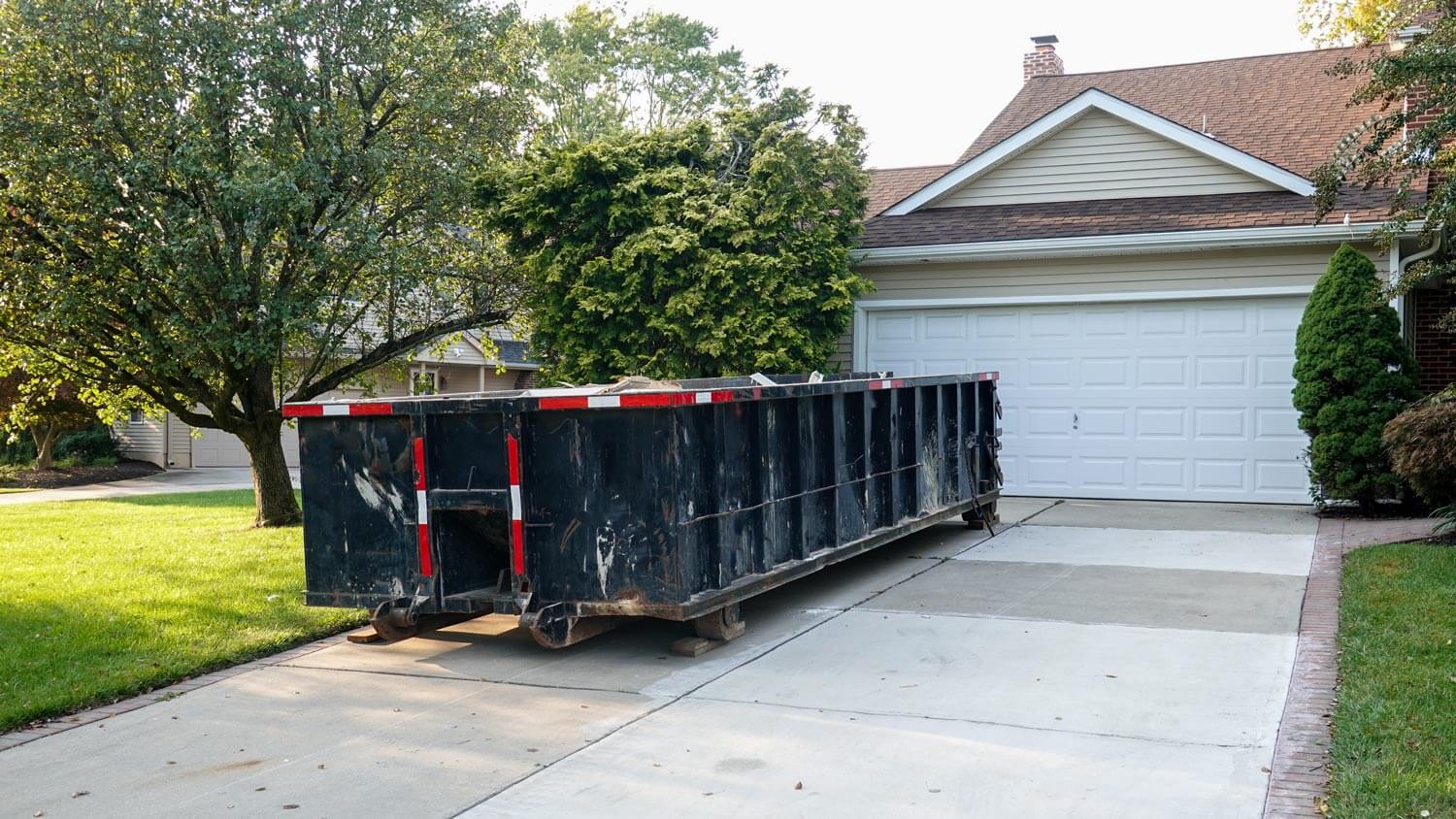
Renting a dumpster is more practical than you think. Use this guide to learn how much your rental will cost, the different dumpster types available, and tips to help you save.
Dumping the details


Whether planning new construction, a remodel, demolition, or a large landscaping project, you may need a dumpster to contain all the waste. Ensure you get the right rental for your needs at the lowest cost by going into rental conversations prepared. This guide covers nine important dumpster rental questions to ask a rental provider.
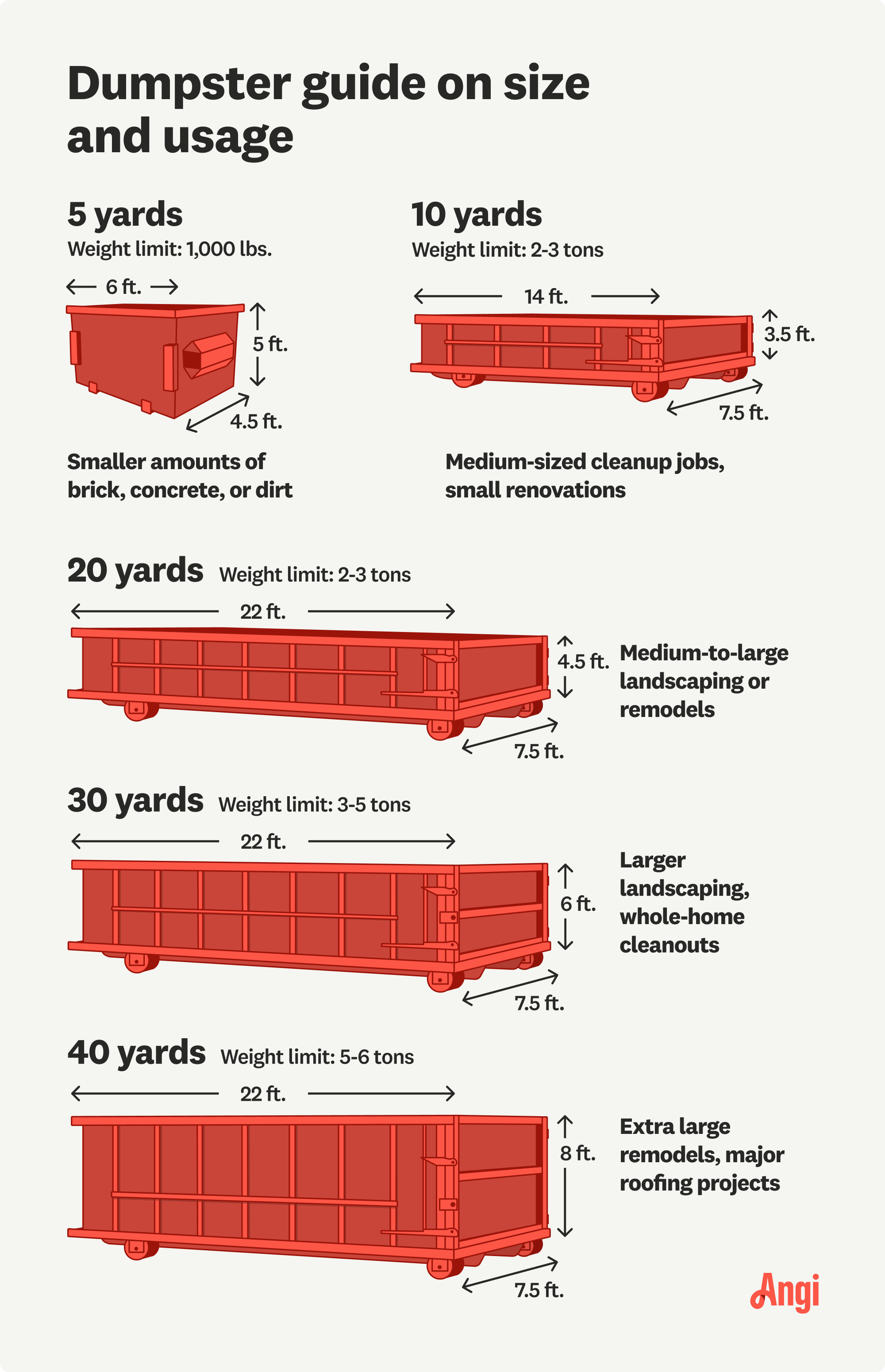
Dumpster rentals are available in several sizes, denoted in cubic yard capacity and weight limit. You can find a list of available sizes on your local dumpster rental company's website. Your chosen pro can help you determine the best dumpster for your project needs and placement area, but it helps to know a few standard sizes and what each is best for.
| Dumpster Size | Best For |
|---|---|
| 5-yards | Small amounts of construction debris or dirt |
| 10-yards | Small driveways and medium-sized jobs |
| 16- to 20-yards | Medium-to-large landscaping jobs or remodels |
| 30-yards | Larger projects, such as whole-home cleanouts |
| 40-yards | Largest remodels, demolitions, or roofing projects |
Most companies that rent dumpsters for residential projects will rent roll-off dumpsters. These large dumpsters can accommodate many materials and are easy to load and unload from a delivery truck.
Roll-off dumpsters differ in function and appearance from front-load, rear-load, and compacting dumpsters—those dumpster types are designed for commercial waste disposal. Roll-off dumpsters have an open-top design and may have a swinging door on the side for easier disposal of heavy materials.
The cost to rent a dumpster varies by size, but most dumpster rentals are priced per week of use. Talk to your dumpster rental company about rates and fees to expect for your project. Some companies may charge a flat fee for each dumpster size they offer.
Expect to pay about $200 per week for a small dumpster and $800 per week for an oversized dumpster, though costs may be higher in some geographic areas. You may also be subject to fees based on the weight of the debris in the dumpster, and exceeding the weight limit will come at an additional cost. Some municipalities require you to pay a fee to place a dumpster on your property or the street nearby.
How long you can rent a dumpster is determined by the terms of your rental agreement. Some companies offer long-term dumpster rentals for discounted weekly rates, while others charge a flat daily rate for each day you keep your dumpster past the initial weeklong rental period.
Either way, it's important to continually communicate your needs with your rental company so they don’t pick up your dumpster before you finish your project.
Your dumpster's weight limit is measured in tons based on size. Load it as evenly as possible to avoid hitting the weight limit and maximize the amount of waste you can fit inside.
No items should stick out or hang over the side, as this can make pickup and transportation more dangerous and lead to additional fees. If you're unsure how much weight to expect from your project, talk to your dumpster rental provider about getting an estimate.
In many cities, you can place a dumpster on your private property, and you may not need a permit. However, regulations vary from place to place, and dumpster rental companies should know local rules. Contact the appropriate local authority to ask about the regulations at your home address.
Homeowners commonly place dumpsters in their driveway, yard, or curbside on the street. Some dumpsters can sit on a slight incline, but there are limits that your dumpster rental provider will go over with you. Dumpster delivery trucks require adequate space to maneuver and unload your roll-off dumpster, which may include overhead clearance to allow the rising truck bed.
Dumpsters can scratch or damage driveways and lawns, so consider placing plywood or another protective measure where the dumpster will sit.
Rental company policies will vary on whether you can rent multiple dumpsters, but some do allow it. Sometimes, you can call once a dumpster is full, and the company will replace it with an empty dumpster immediately. In other cases, you may want multiple dumpsters on-site or staggered delivery times. Find a company that can accommodate your needs.
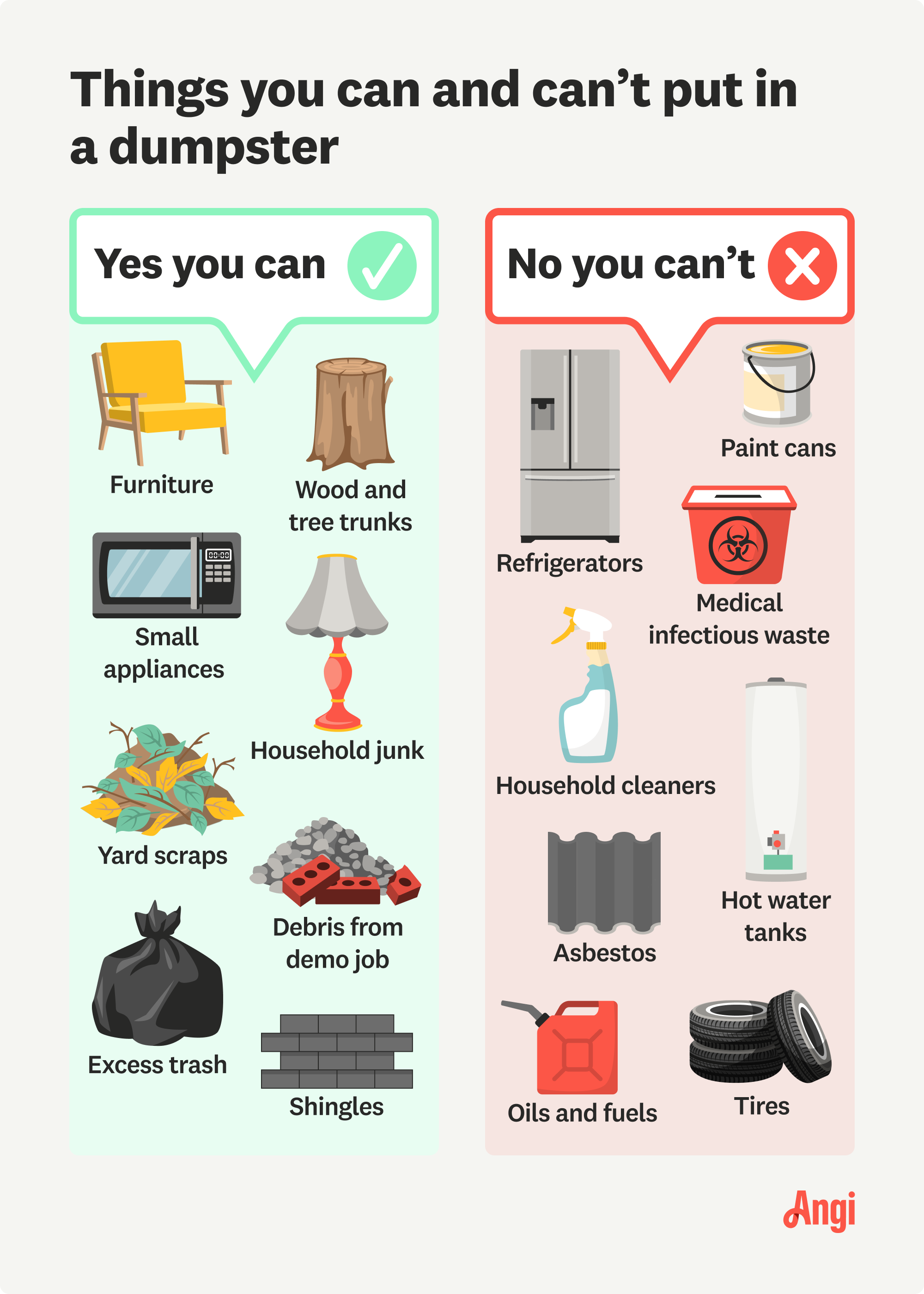
Dumpster rentals allow common household junk, construction debris, landscaping or yard waste, old furniture, mattresses, and fixtures. However, you should always inquire about allowed and prohibited items.
Certain items cannot be placed in a dumpster, including hazardous waste such as gasoline cans, paint cans, oil, electronics, batteries, appliances, tires, and flammable chemicals. These items may be illegal to dispose of or involve specific disposal methods.
While not always required on private property, you may need a dumpster rental permit to leave a dumpster in front of your home, especially if the dumpster will sit in the street. Your dumpster rental company should ask about placement and may even file for a permit for you if one is required. However, you should be aware of your local regulations to ensure you don’t get fined.
Contact your city, township, or other municipal authority for permitting information.
From average costs to expert advice, get all the answers you need to get your job done.

Renting a dumpster is more practical than you think. Use this guide to learn how much your rental will cost, the different dumpster types available, and tips to help you save.

Learn how to rent a dumpster for your next home project or cleaning spree.

Despite popular belief, a dumpster is not a catch-all for every type of trash. What items cannot be placed in a dumpster? We break it down here.
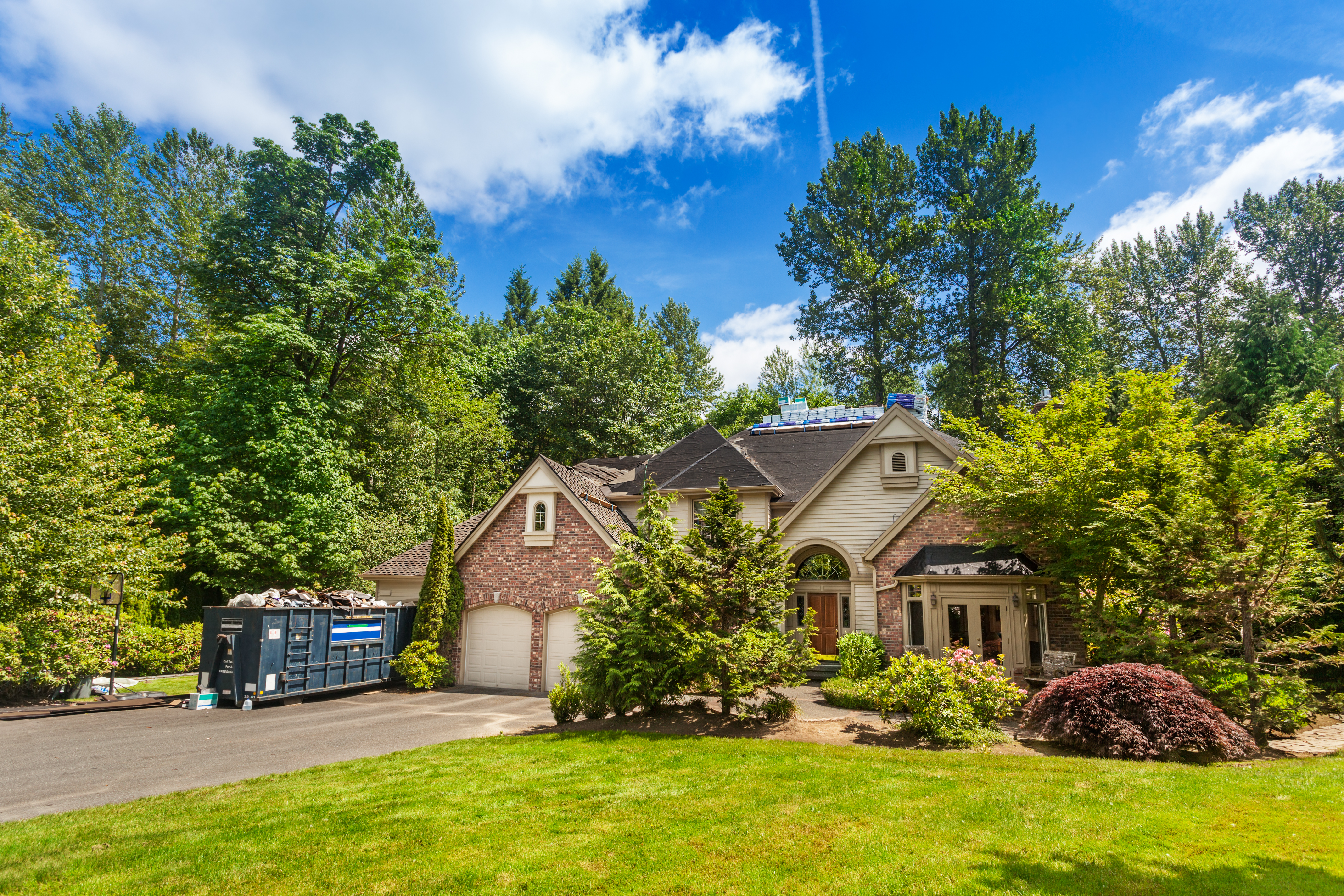
What size dumpster do I need for furniture? It depends on a few factors. Learn more about how to determine the right capacity for your project.

There are several situations where you will need a permit for dumpster rental, especially if it blocks traffic.
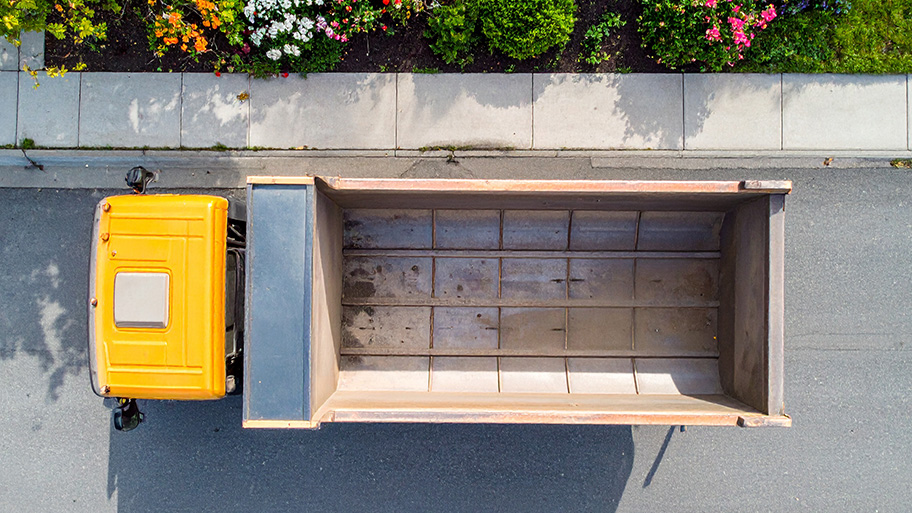
Need a dump truck for your project but not sure how big it should be? Use this guide on dump truck sizes and sizing to get the right size for your needs.